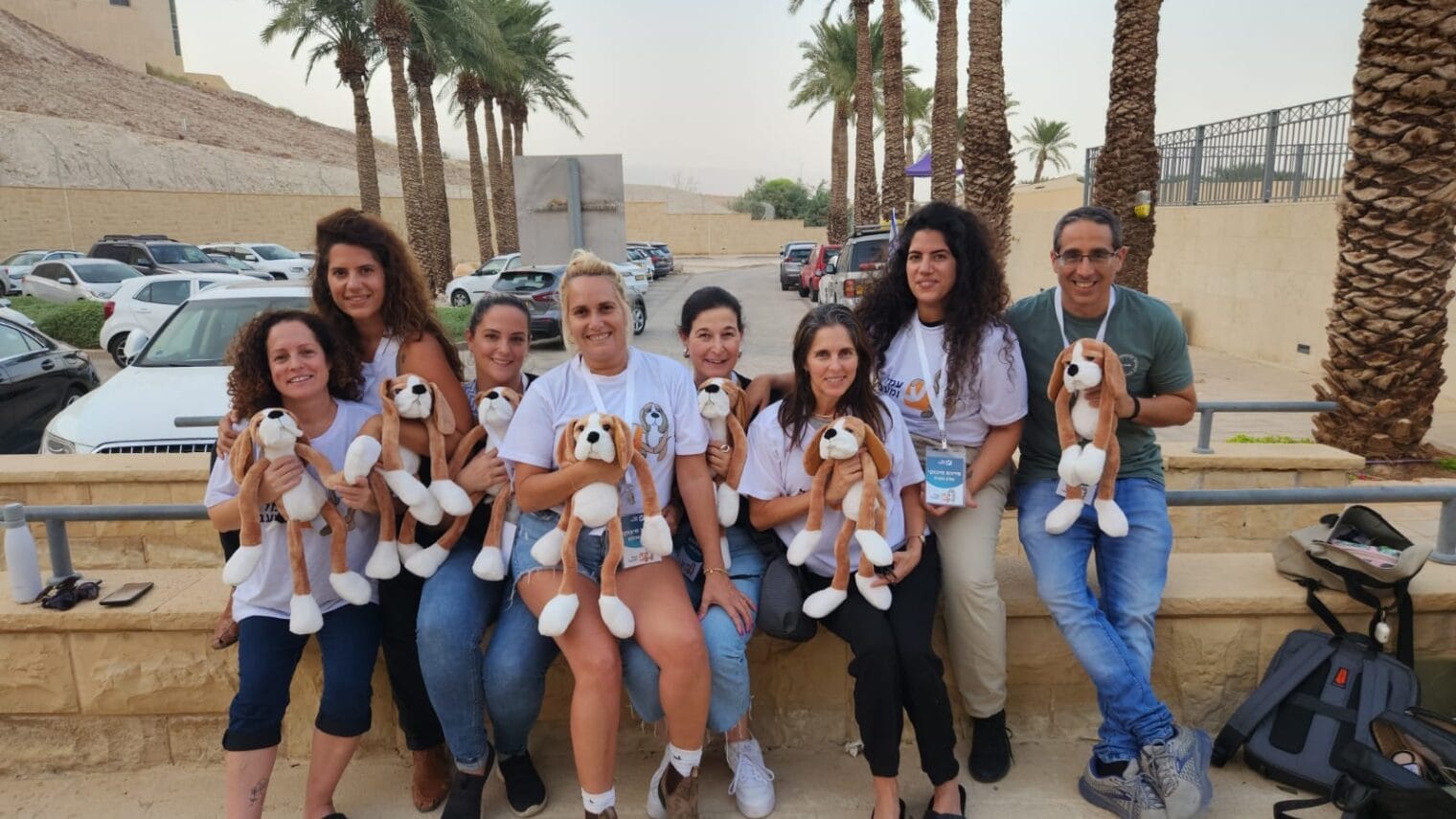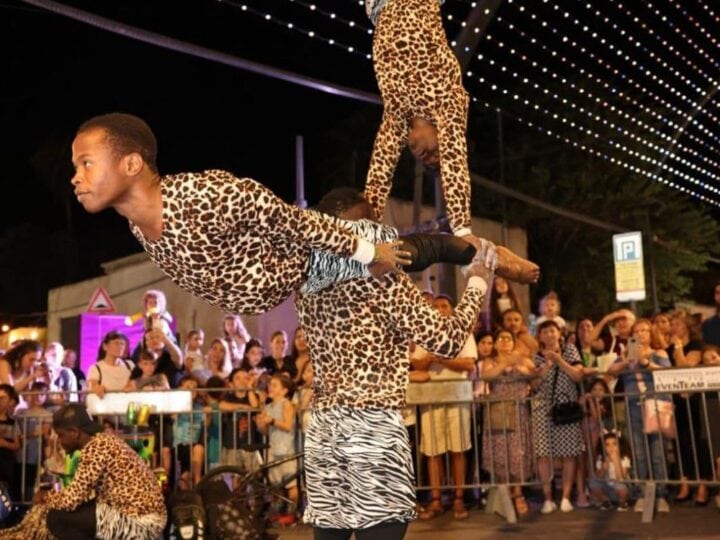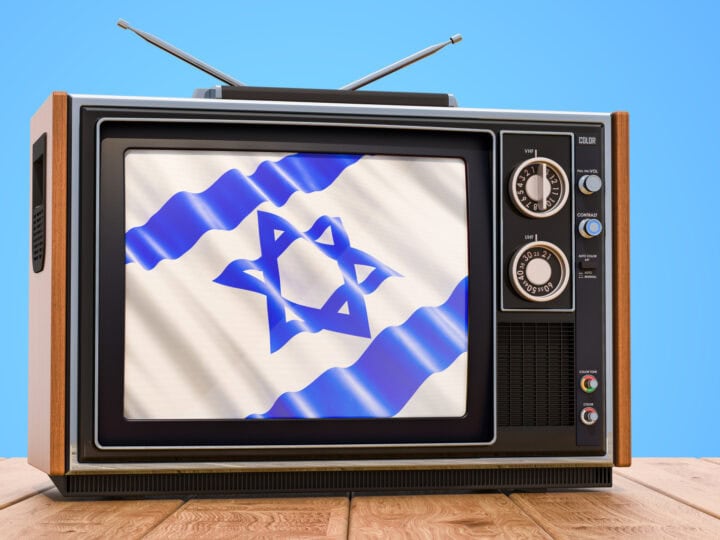Israeli children are anxious and grieving in the wake of the October 7 massacre.
Fortunately, Israel is a resourceful and resilient nation when it comes to addressing their needs.
ISRAEL21c spoke to three organizations dedicated to helping them emotionally, socially and financially.
Hibuki
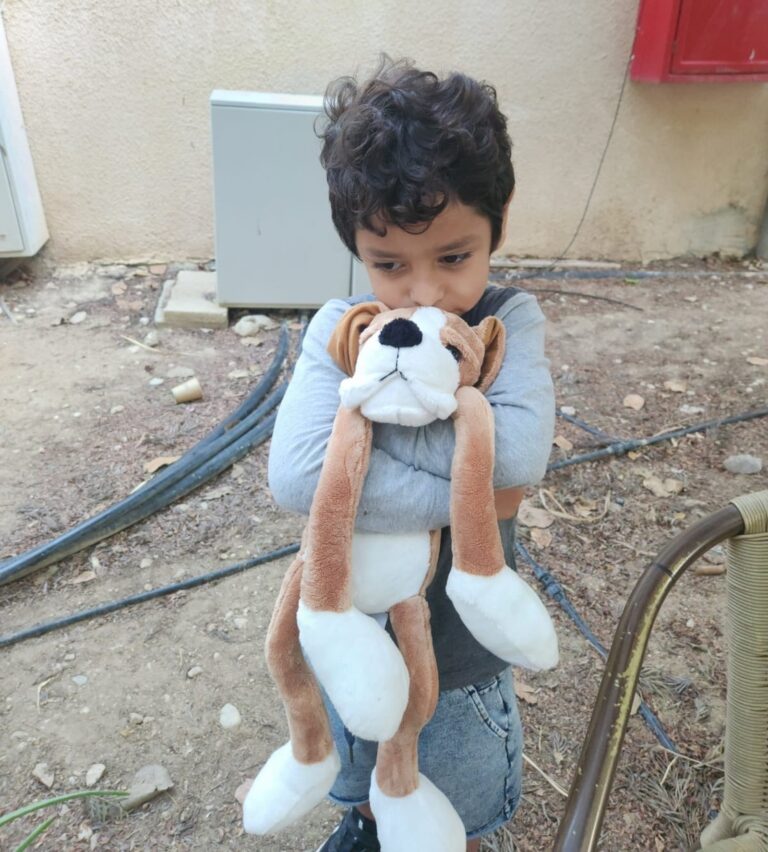
Many children are unable to articulate their feelings after witnessing the horrors of the Hamas massacre firsthand.
But they confide in Hibuki – the Hebrew word for “huggy” – a sad-faced, long-legged plush puppy.
They identify with Hibuki, they feel sorry for Hibuki, and by taking care of Hibuki, they start to take care of themselves.
The critical thing is early intervention, says clinical psychologist Shai Hen-Gal, who developed Hibuki with Tel Aviv University Prof. Avi Sadeh after the Second Lebanon War in 2006.
Tackling the trauma within two months is likely to prevent a child developing PTSD (post-traumatic stress disorder), he says. Beyond four months, the chances of the child needing complex and long-term therapy increase significantly.
In the 10 weeks since Hamas’s attacks on Israel’s southern communities, Hen-Gal and his volunteer team of 25 clinical psychologists have handed out 2,500 Hibuki dolls to children aged three to nine and begun the counseling protocol that is essential to their success.
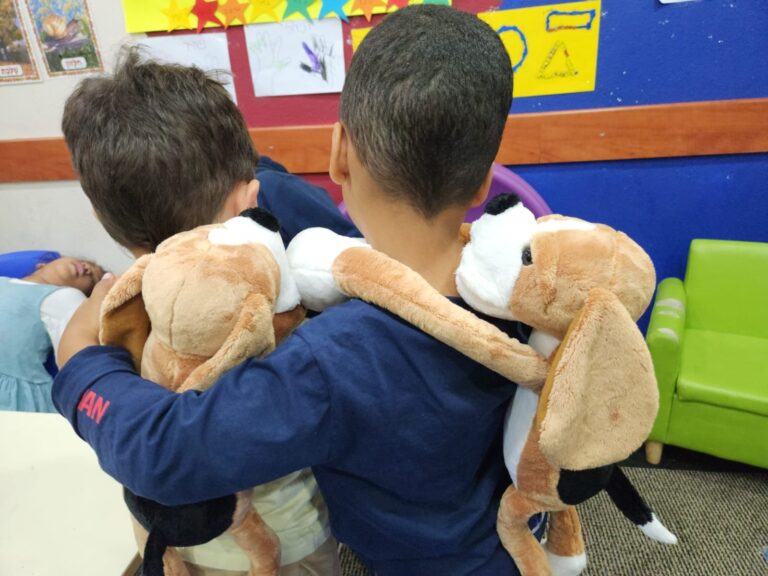
Many of the children they see are in “shutdown mode.” They’ve been evacuated to Eilat or the Dead Sea and are terrified of leaving their hotel rooms.
“Eighty percent have thought out a plan of what they’d do if Hamas came to the hotel, how they’re going to escape, how they’re going to save their parents,” says Hen-Gal, who heads the mental health division of Amal Group, a network of schools in Israel.
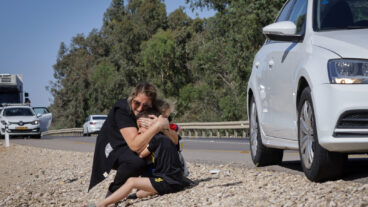
One of the adages that has accompanied Israel for years, and even more so since war broke out on October 7, is that Israel is a country with Post Traumatic Stress Disorder. But that is not completely accurate.
“People always say that Israel is a country with trauma,” notes Dr. Nitsa Nakash, a psychiatrist at Sheba Medical Center. “And I always reply that trauma is an event, trauma is not a condition. But yes, the country as a whole has experienced traumatic events.”
“They are afraid, because they saw that nobody could help them while they were sheltering from terrorists in their homes for as long as 20 hours. They saw bodies. They were afraid that Hamas was going to kill them.
“They saw friends killed or kidnapped to Gaza, they saw houses and the kibbutzim where they live destroyed and burned. They saw their mothers and the fathers crying and feeling helpless,” he says.
“But when they see Hibuki, with his sad face, a miracle happens. They feel they’re not alone any more. Hibuki is also afraid, he also feels sadness.
“He also doesn’t know what to do. Now they feel that they’re not alone. Now they have a role, a mission to take care of Hibuki.”
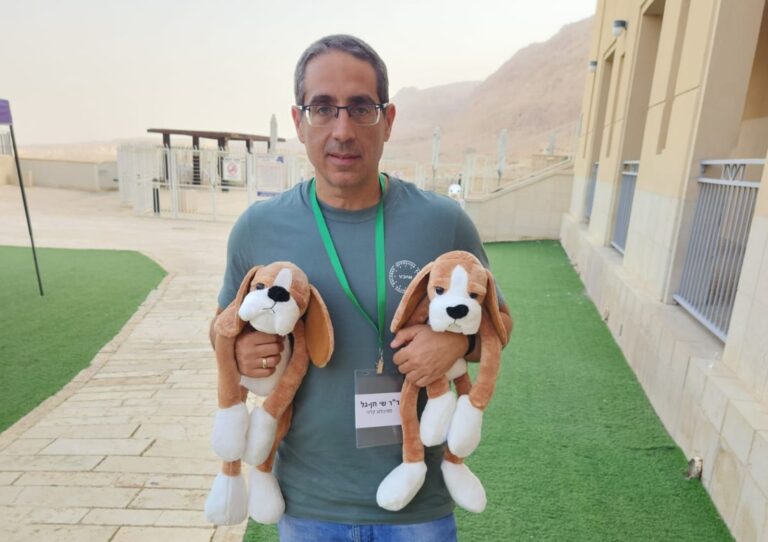
A child will typically attend three sessions with a psychologist. Hibuki is presented at the first session. By the second meeting, parents of 80-90% of the children say they’re feeling better, sleeping alone, playing with friends again and not so afraid.
“Now they have a vision and they have a power, and a very important thing to do, to help Hubuki, and they don’t feel alone anymore.”
Hen-Gal and his colleagues still have as many as 30,000 more children to help. Many from Israel’s northern communities are suffering anxiety from Hezbollah rocket attacks and from being displaced from their homes because of the danger. That’s in addition to those in the southwest, many of whom had their homes destroyed.
“This is a situation that nobody experienced before,” says Hen-Gal. “And it’s a nightmare for them. It’s a nightmare also for the psychologists who help them. You have to be very strong to hear all these terrible stories.”
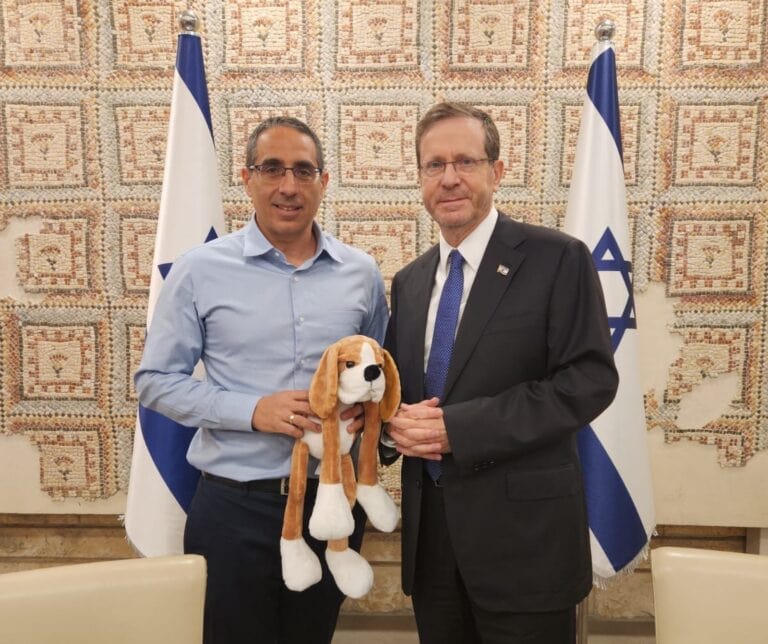
He says that before Hibuki there was very little in the way of effective psychological intervention for young children. The vast majority of resources were aimed at teens and adults.
But Hibuki has become a global phenomenon. Over 20,000 emotionally distressed children in Ukraine (where the Hibuki soft toys are manufactured) have received Hibuki therapy support since February 2022.
The soft toy was also used to help 1,000 orphaned children in Japan after the 2011 tsunami and it is now being rolled out in the United States for children traumatized by violence, crime and divorce.
Hen-Gal’s team of clinical psychologists are all volunteering their time to make sure children get Hibuki therapy. The Hibuki organization receives funding from the UK-based Myisrael, which helps “under-the-radar” causes.
Koby Mandell Foundation
“The most important lesson for those bereaved by terror is that you’re allowed to be happy,” says Eliana Mandell Braner.
It’s a powerful lesson, especially for those who survived October 7. And for her it’s also a very personal one.
She was 10-years-old in May 2001 when her brother Koby Mandell, aged 13, was murdered by Palestinian terrorists together with his friend, 14-year-old Yosef Ishran, as they explored a cave in the Judean desert.
Her parents, Seth and Sherri, went on to establish the Koby Mandell Foundation to help family members bereaved by terror attacks to rebuild their lives.
Braner is now executive director of the foundation’s activities in Israel and runs three residential camps each year for around 400 youngsters aged six to 18 who have lost a parent or sibling to terror.
“The fact that you’re having fun and the fact that you’re smiling doesn’t mean that you’ve forgotten,” is the first thing campers are taught.
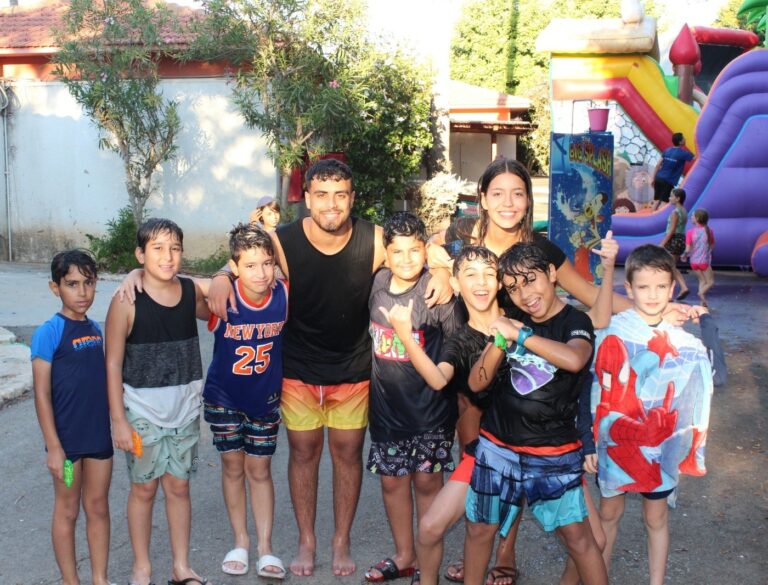
“A lot of them don’t know that they can live their life and still remember, because they’re afraid that they’re going to forget. It’s a real fear that they have,” says Braner, who has a degree in psychology.
“And we teach them that, no, the people we love are with us always.”
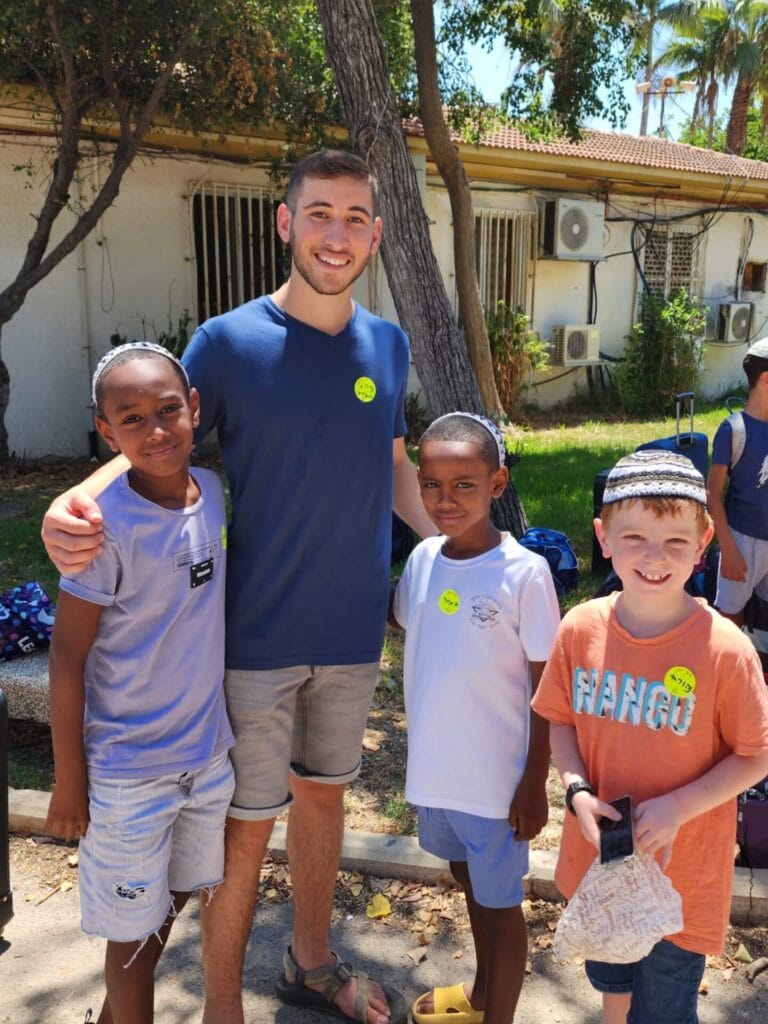
The Koby Mandell camps are part therapy, part fun, designed to give young people a sense of connection with peers who have similar experiences.
A typical conversation between campers is, “Oh, you’re here because your brother was murdered? That’s so funny. I’m here because my brother was murdered.”
“Having that connection empowers them,” says Braner. “The only place that they would speak that way and say it so openly is when they’re with their peers, with other people who’ve lost somebody who have gone through the same thing.
“How the healing happens is being able to come together, have fun together, and talk about the issues.”
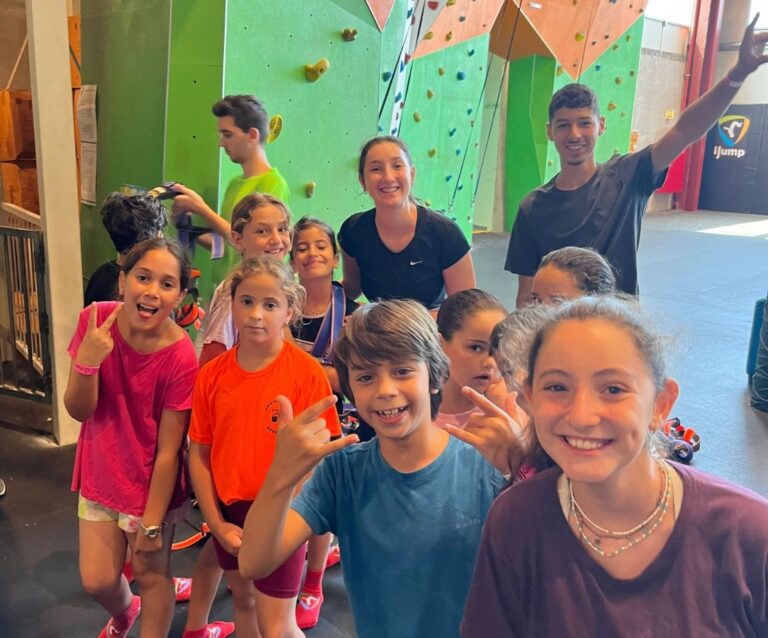
The foundation is now setting up separate camp programs for children who lost a family member in the October 7 Hamas massacre. Beyond bereavement, many of these kids witnessed terrible horrors firsthand, or suffered the agonizing uncertainty of not knowing the fate of their loved ones.
“We want to help them, we want to help build their resilience in total, and not just around the bereavement, but around the whole experience that they went through,” she says, noting that Israel suffered more losses in a single day than throughout the entire Second Intifada, from 2000 to 2005.
The foundation has already been in touch with over 60 families and expects the number to double by the summer.
Israeli Children’s Fund
High-tech entrepreneurs have pledged to secure the financial future of the 200-plus children who lost a parent in the October 7 massacre.
The Israeli Children’s Fund (ICF), launched in the immediate aftermath, will take care of both short-term needs, such as housing, and long-term needs such as college tuition.
“We want to make sure that these children, of all children, are able to not only survive, but to thrive in the world,” said Marni Mandell, a serial startup founder and head of fundraising at ICF. (She is not related to Seth and Sherri Mandell.)
“We want to make sure that every opportunity is available to them. We want to make sure that the high-tech community opens its doors to them and that these children have the ability to accomplish anything they want to in their lives.”
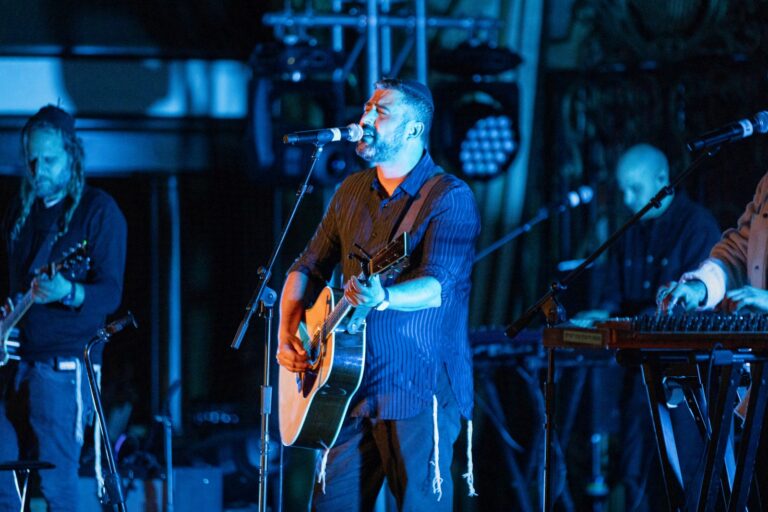
She said people initially reached out to relatives of 12-year-old Ariel Zohar with offers of financial help.
Ariel was weeks away from his bar mitzvah when Hamas attacked Kibbutz Nahal Oz where he lived, and murdered all his immediate family – father Yaniv, 54, mother Yasmin, 49, and sisters Tehelet, 20, and Keshet, 18. Ariel was out running at the time and escaped the slaughter.
His aunt and uncle, who are now caring for him, didn’t need donations, said Mandell, but were keen to make sure that they reached those who did.
Israel’s government does provide monthly financial support to children bereaved by terror until they’re 18, as well as lifetime psychological support. It also provides assistance for families who take on orphans of terror. The new fund is designed to fill in any gaps, especially immediate needs, since bureaucratic wheels can turn slowly.
“All of a sudden, families that didn’t have children before are now taking on children, and they have a lot of needs on a day-to-day basis that they hadn’t had before,” Mandell explains. “One person had to take responsibility for his two younger siblings and he needed immediate financial assistance to get an apartment. We’re really here to help with those stopgaps.”
The ICF has raised 6 million shekels so far ($1.65 million) from venture capitalists, private donors and fundraisers, including a private performance by Israeli singer-songwriter Ishay Ribo in New Jersey.




